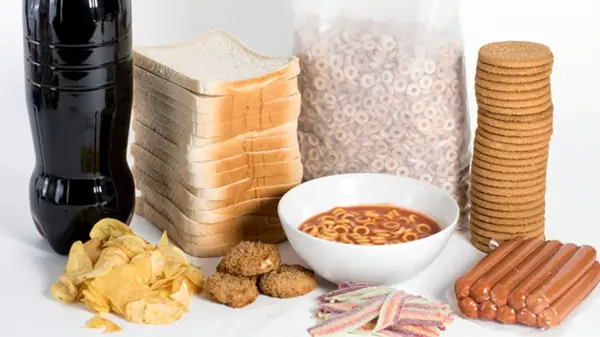The former head of the US Food and Drug Administration, Dr. David Kessler, has initiated a significant challenge to the Trump administration’s public health agenda, “Make America Healthy Again.” On March 5, 2025, Kessler filed a petition urging the FDA to reconsider the safety designations of several key ingredients found in ultraprocessed foods, potentially reshaping the food industry landscape.
Kessler’s petition argues that certain sweeteners, refined flours, and other additives should no longer be deemed “generally recognized as safe” (GRAS). Removing this designation would compel food manufacturers to either reformulate their products or prove the safety of these ingredients through rigorous testing. This move could have broad implications for the availability of many ultraprocessed items on the market.
The petition comes at a time when US Health and Human Services Secretary Robert F. Kennedy Jr. has relied on voluntary measures from popular food brands to eliminate artificial dyes and other additives. Kessler’s action could serve as a catalyst for more stringent regulations, as it directly challenges the leniency that has characterized the food industry in recent decades.
Marion Nestle, a distinguished professor of nutrition at New York University, highlighted the potential impact of Kessler’s strategy. “Kessler has given the FDA a way to define the vast majority of ultraprocessed foods,” she stated in an email. “This is just what MAHA has asked for. I hope they take it seriously.”
Kessler proposes a twelve-month window for companies to submit evidence supporting the safety of these additives. He believes this shift in regulatory burden is essential for public health. “It’s a very appropriate, worthy step to shift the burden of proof where it belongs,” said Michael Taylor, a former FDA food regulator. “It’s using the GRAS tool to really drive a serious safety conversation.”
The implications of Kessler’s petition extend beyond regulatory definitions. Federal health officials recently sought public input on how to define ultraprocessed foods, a preliminary step toward establishing new regulations that may take years to finalize. Kessler’s petition, however, puts pressure on the FDA to respond within 180 days, potentially accelerating the regulatory process.
Kessler, who previously served as FDA commissioner under presidents Bill Clinton and George H.W. Bush, oversaw pivotal changes in food labeling. He also played a crucial role in regulating tobacco products in the 1990s. Drawing parallels to those efforts, Kessler noted, “What was key in tobacco was finding the regulatory hook. It was about asking the right legal question that would frame the issue.”
The term ‘ultraprocessed foods’ has gained traction among consumers, but Kessler acknowledges the challenge of legally defining its components. He emphasizes the urgent need for action, citing a rise in obesity, diabetes, and heart disease since the FDA approved these ingredients under GRAS regulations four decades ago.
Kessler’s petition specifically targets refined flours and starches that are converted into sugars through food extrusion technology. Ingredients such as wheat, corn, tapioca, oat, and potato flour are included, along with various refined sugars. The focus on these additives has been lauded by nutrition experts.
“It’s the additives that make industrially processed foods so appealing,” explained Christopher Gardner, director of nutrition studies at the Stanford Prevention Research Center. “If you take those tools away, the foods won’t be as addictive or flavorful.”
Leading nutrition researcher Dr. Walter Willett from Harvard T.H. Chan School of Public Health praised Kessler’s proposal as a necessary step toward ensuring food safety. He remarked, “This is an important proposal that is based on the true meaning of GRAS, which would exclude the majority of foods on our grocery shelves.”
The GRAS standard, established in 1958, was intended to apply narrowly to widely used ingredients. Yet, a 2022 analysis by the Environmental Working Group found that nearly 99% of new food chemicals since 2000 were approved not by the FDA but by the food and chemical industries themselves. During that time, food manufacturers sought FDA approval for new substances only 10 times.
Barry Popkin, a distinguished professor at the Gillings School of Global Public Health, called Kessler’s petition “a brilliant move.” He stated that it places significant pressure on the food industry to demonstrate that their products are safe, a task he believes is nearly impossible.
The petition is poised to encounter resistance from major food brands, similar to the backlash faced when the FDA revoked the GRAS status of partially hydrogenated oils. Taylor noted that while the industry may adapt, Kessler’s proposal targets a broader range of highly processed carbohydrates.
As the Trump administration, led by Kennedy, prepares to release its second report on the MAHA initiative, Kessler’s petition could influence proposed policy changes. The MAHA Commission’s first report in June identified ingredients in ultraprocessed foods as potential contributors to chronic illnesses in children. The upcoming report, due on March 10, 2025, is expected to outline further recommendations.
The implications of Kessler’s actions and the administration’s response will be closely watched, as they could signal a fundamental shift in how the food industry operates and how consumers perceive the safety of their food.




































































